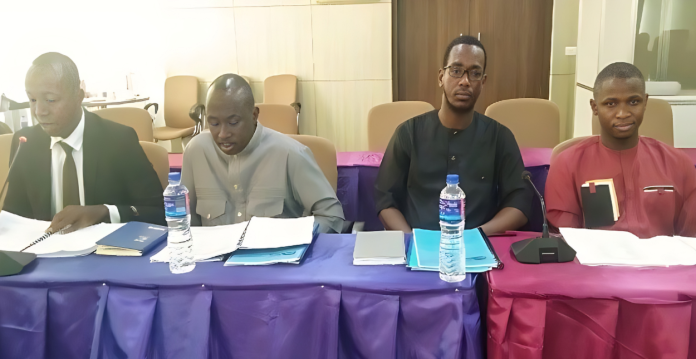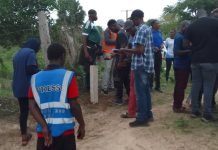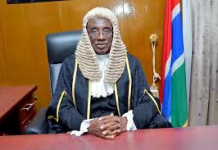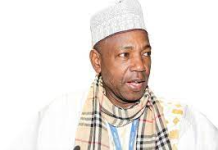By: Kebba AF Touray
The Board and Management of Basse Area Council (BSAC) have reported that the council spent over six million dalasi on infrastructure and social services.
The management reported this in its 2019 activity report, which was submitted to the Finance and Public Accounts Committee (FPAC) during their appearance on Wednesday, 21 February 2024, for the presentation of their activity report and financial statement.
On infrastructure development, BSAC management explained that during the period, it has spent a total of Five Million, Seven Hundred and Ninety-Nine Thousand, Eighty Hundred and Fifty-Three Dalasi and Fifty-Two Bututs (D5,799,853.52).
The council explicated that this is in line with their continued commitment to provide a social services and Infrastructural developments to the communities within the Region.
“These include, provision of clean drinking water, Bridges Course ways, Youth development projects, Basse car park and maintenance of Basse Main Market which amount to a tune of D5, 799,853.52,” said BSAC Management.
On Contribution and social services, BSAC Management also reported that they are also responding swiftly and contributing to other social services within the Region with a view to ensure that services delivery to their tax payers is not delayed.
In the light of the above, the council indicated that it continues to support the following institutions to enable them conduct their activities during the year under review.
“This, however, has created more understanding between Basse Area Council and its partner in the Region, and as a result, Council spent an amount of D1, 170,319.76 as contributions to the above Departments as support during the year under review,” it said.
These entities as highlighted by the council in its 2019 report include the NDMA, Youth development fund, Regional Security Fund, Regional Sport Committee, National Events/ Presidential Tours, Arts and Culture and TAC/DCD/MDFTs.
On support to schools, the management reported that the Council as an LGA has an obligation to provide support to needy students within their jurisdiction.
“In view of that, council support schools through scholarship to both senior and tertiary institutions. Seven medical students were supported to undergo seven-year community doctorate program at the University of the Gambia”, said BSAC Management.
It added that out of the seven, three successfully completed their Community Doctorate program. There is also a scholarship scheme that council provided to needy students annually.
The management also reported that it has provided support to health, energy and environment and waste management sectors, stating that on health it has provided 10 security officers to Basse District Hospital, and a cleaner to Yorobawol hospital.
On energy, it said that it continues to pay water and Electricity bills as arrears which has been accumulated for the past years.
“Basse Area Council as an LGA is encountering numerous challenges on issues of environment and waste management. However, we have provided a dump site at Allunhari so as to control illegal dumping within Basse and the environs,” said BSAC Management.
According to the council with the said initiative, it is able to do routine street collection of waste, monthly ‘Setsetal’, daily collection of Market Waste, Waste collection at Basse Car Park, Medical Waste collection from Public Health Facilities, and daily up keep of market and public toilets at the car park.
The council lamented that it is confronted with challenges, and among them are inadequate capacity, revenue suppression, untimely payment of Government Rates and Taxes, untimely payment of operational fees for institutions and companies.
The council added that it is also confronted with untimely and unlimited return of car park dues from the Central Government, Limited tax on property rates due to political interference, Council’s revenue sources continue to erode back to Central Government and Payments of the street lights bill is a major challenge for council.
The council recommended: “Government to support in the recovery of Council’s Revenue Sources that were eroded. Council demand that birth certificates registration, death certificate and marriage certificate should be the responsibility of council in accordance with the Scheduled in the Local Government Act, 2002. Government should encourage and support council in strengthening collaboration with public and private partnership, with Central Government releasing the Grants to Council.”





















